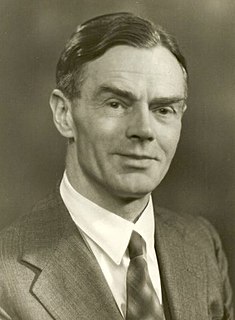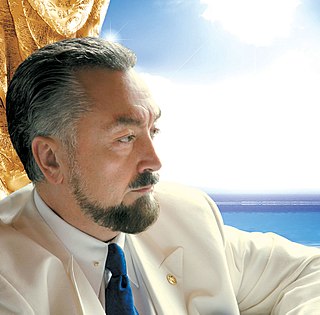A Quote by R. Buckminster Fuller
Out of my general world-pattern-trend studies there now comes strong evidence that nothing is going to be quite so surprising and abrupt in the future history of man as the forward evolution in the educational process.
Related Quotes
By contrast with history, evolution is an unconscious process. Another, and perhaps a better way of putting it would be to say that evolution is a natural process, history a human one.... Insofar as we treat man as a part of nature--for instance in a biological survey of evolution--we are precisely not treating him as a historical being. As a historically developing being, he is set over against nature, both as a knower and as a doer.
It is essential for evolution to become the central core of any educational system, because it is evolution, in the broad sense, that links inorganic nature with life, and the stars with the earth, and matter with mind, and animals with man. Human history is a continuation of biological evolution in a different form.
There is the theory that all the living forms in the world have arisen from a single source which itself came from an inorganic form. This theory can be called the 'general theory of evolution,' and the evidence which supports this is not sufficiently strong to allow us to consider it as anything more than a working hypothesis.
Only a tiny fraction of corpses fossilize, and we are lucky to have as many intermediate fossils as we do. We could easily have had no fossils at all, and still the evidence for evolution from other sources, such as molecular genetics and geographical distribution, would be overwhelmingly strong. On the other hand, evolution makes the strong prediction that if a single fossil turned up in the wrong geological stratum, the theory would be blown out of the water.
In the final analysis the hierarchic pattern is nothing like the straightforward witness for organic evolution that is commonly assumed. There are facets of the hierarchy which do not flow naturally from any sort of random undirected evolutionary process. If the hierarchy suggests any model of nature it is typology and not evolution. How much easier it would be to argue the case for evolution if all nature's divisions were blurred and indistinct, if the systema naturalae was largely made up of overlapping classes indicative of sequence and continuity.
We need merely understand that the evolutionary process is neither random nor determined but creative. It follows the general pattern of all creativity. While there is no way of fully understanding the origin moment of the universe we can appreciate the direction of evolution in its larger arc of development as moving from lesser to great complexity in structure and from lesser to greater modes of consciousness. We can also understand the governing principles of evolution in terms of its three movements toward differentiation, inner spontaneity, and comprehensive bonding.
Evolution does not attempt to explain the origin of life. It is simply a history of the process of life. With the secret cause of life evolution has nothing to do. A man, therefore, may be a materialistic evolutionist or a theistic evolutionist; that is, he may believe that the cause is some single unintelligent impersonal force, or he may believe that the cause is a wise and beneficent God.
You see ... a man like me, a cautious man, has his life all figured out according to a pattern, and then the pattern flies apart. You run around for quite a while trying to repair it, until one day you straighten up again with an armful of broken pieces, and you see that the world has gone on without you and you can never catch up with your old life, and you must begin all over again.
As to the Christian religion, besides the strong evidence which we have for it, there is a balance in its favor from the number of great men who have been convinced of its truth after a serious consideration of the question. Grotius was an acute man, a lawyer, a man accustomed to examine evidence, and he was convinced. Grotius was not a recluse, but a man of the world, who certainly had no bias on the side of religion. Sir Isaac Newton set out an infidel, and came to be a very firm believer.





































